Does Dental Insurance Cover Oral Surgery? Here’s What You Need to Know
When it comes to oral health, many of us think about regular checkups, cleanings, and perhaps the occasional filling or crown. But what if you need more serious dental treatment, like oral surgery? You might be wondering if your dental insurance will cover the costs, or if you'll have to pay out-of-pocket. As someone who's navigated dental insurance myself, I can tell you this topic isn't as straightforward as it seems. There are a lot of factors that influence whether or not your oral surgery will be covered. Let’s dive into the details.
1. Understanding Oral Surgery
Oral surgery encompasses a wide range of procedures that go beyond routine dental care. Some of the most common oral surgeries include:
- Wisdom tooth extraction
- Dental implants
- Corrective jaw surgery
- Oral biopsies
- Gum surgery
- Bone grafting
Each of these surgeries can vary in complexity, recovery time, and cost. The type of surgery you need will directly impact whether or not your dental insurance will cover it. But it’s also important to consider the kind of insurance plan you have.
2. What Does Dental Insurance Typically Cover?
Most standard dental insurance plans primarily cover preventive care, such as cleanings, checkups, and exams. These plans may also cover basic dental procedures like fillings and extractions. However, when it comes to oral surgery, things can get more complicated. Depending on the type of surgery, dental insurance may cover part of the cost or none at all.
For example, if you're getting a routine wisdom tooth extraction, there's a good chance that dental insurance will cover a significant portion, as this is considered a standard procedure. On the other hand, more advanced surgeries like dental implants or jaw realignment surgery may only be partially covered, or not covered at all, depending on the terms of your policy.
3. What Factors Influence Coverage?
There are several factors that can affect whether your dental insurance covers oral surgery:
- Policy Type: Some insurance plans focus only on preventive care and basic procedures, while others might cover more extensive surgeries. There are also PPO and HMO plans, each with different levels of coverage.
- Medical Necessity: Insurers often look at whether the surgery is medically necessary. For instance, if you're getting oral surgery to treat a medical condition (like a jaw misalignment), this might be covered under medical insurance instead of dental insurance.
- Procedure Complexity: The complexity of the procedure also plays a big role. Basic extractions may be covered, but surgeries that involve advanced techniques or post-surgery treatments may require special approval.
- Out-of-Network Providers: If you choose an out-of-network provider, your insurance may not cover the full cost of the surgery, or you might have to pay higher out-of-pocket expenses.
4. Real-Life Example: My Experience with Oral Surgery and Dental Insurance
Let me tell you about my personal experience with oral surgery and dental insurance. A few years ago, I had to undergo surgery to remove my wisdom teeth. I was anxious, not just about the surgery itself but about how much it would cost. My insurance plan covered basic dental procedures, but I wasn’t sure how it would handle something more complicated like oral surgery.
After consulting with my dentist and the insurance provider, I learned that my plan would cover the majority of the surgery, but I would still need to pay a deductible and a percentage of the overall cost. It wasn’t a small sum, but it was much more manageable than I expected.
This experience taught me the importance of understanding what your plan covers and being proactive in communicating with your insurer and dental provider. Every plan is different, and there’s often room to negotiate or appeal if you’re faced with unexpected costs.
5. Dental vs. Medical Insurance: Which One Covers Your Oral Surgery?
While most dental insurance policies will cover basic oral surgeries like extractions, some more complex surgeries may be covered under your medical insurance instead. For instance, if you're getting corrective jaw surgery to address a condition like sleep apnea, your medical insurance might cover it. The line between dental and medical insurance can be blurry when it comes to oral surgery, and this can lead to confusion about which insurance policy should be billed.
In these cases, you might find that your medical insurance covers a significant portion of the costs, and your dental insurance can pick up any remaining balance. It’s essential to verify this ahead of time to avoid surprises.
6. Tips for Getting the Most Out of Your Dental Insurance for Oral Surgery
To make sure you’re getting the most out of your dental insurance for oral surgery, here are some tips:
- Review Your Plan: Take a close look at your policy to understand what procedures are covered, what your deductible is, and any co-pays you might need to pay.
- Get Pre-Approval: If your surgery is not a routine procedure, consider getting pre-approval from your insurance provider. This way, you can confirm what they will cover before the surgery takes place.
- Ask About In-Network Providers: Staying within your insurance provider’s network can help reduce out-of-pocket costs. If you need to see an out-of-network specialist, ask about the financial implications.
- Appeal Denied Claims: If your surgery is denied coverage, don’t be afraid to appeal the decision. Sometimes, you can negotiate or provide additional documentation to get the approval you need.
7. Alternatives to Dental Insurance for Oral Surgery
If your dental insurance doesn't cover the surgery you need, or if you're without insurance altogether, there are other options available. Many dental offices offer payment plans or financing options that allow you to pay for oral surgery over time. Additionally, some medical savings accounts (HSAs or FSAs) can be used to cover dental expenses, including surgery.
Another option is to look for dental discount plans that offer reduced rates for dental procedures, including oral surgery. While these plans aren’t insurance, they can significantly lower the cost of treatment if you’re paying out-of-pocket.
At Dentistry Toothtruth, we can help guide you through finding the best options for your specific needs, whether it's finding the right insurance, a payment plan, or a dental discount plan. It’s always a good idea to research and plan ahead, so you're not left with unexpected costs after your surgery.

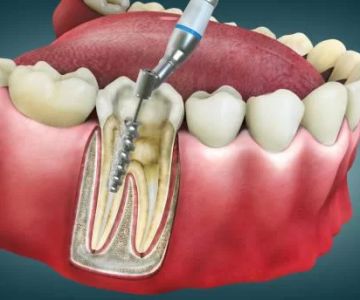
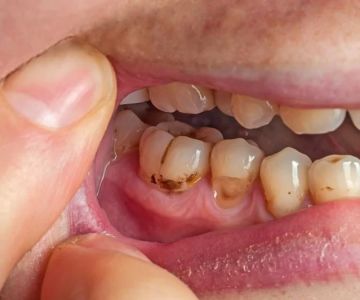

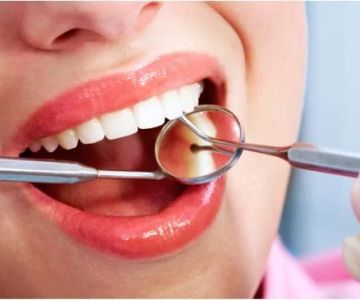
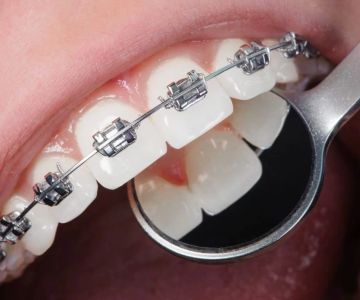
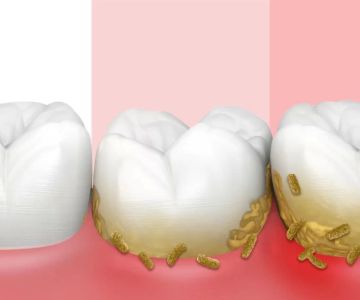
 Amity Harbor Dentistry - Scott Levitz, DDS
Amity Harbor Dentistry - Scott Levitz, DDS First Choice Dental- Verona
First Choice Dental- Verona Pediatric Dental Specialists of Montrose
Pediatric Dental Specialists of Montrose Abrams Family Dentistry
Abrams Family Dentistry Thai & Kiourtsis Orthodontics
Thai & Kiourtsis Orthodontics Family Dental Care of Fitchburg
Family Dental Care of Fitchburg The Importance of Oral Health Education During Pregnancy for a Healthy Pregnancy
The Importance of Oral Health Education During Pregnancy for a Healthy Pregnancy Why Skipping Dental Checkups Can Lead to Bigger Oral Health Problems
Why Skipping Dental Checkups Can Lead to Bigger Oral Health Problems Advantages of Porcelain Dental Restorations
Advantages of Porcelain Dental Restorations Best Tips for Brushing Your Teeth Properly for Healthy Gums: Essential Techniques for Oral Health
Best Tips for Brushing Your Teeth Properly for Healthy Gums: Essential Techniques for Oral Health How Can Diabetes Cause Tooth and Gum Problems? Preventing and Managing Oral Health Issues
How Can Diabetes Cause Tooth and Gum Problems? Preventing and Managing Oral Health Issues Healthy Habits for Promoting Good Oral Health and Hygiene: Tips for a Healthy Smile
Healthy Habits for Promoting Good Oral Health and Hygiene: Tips for a Healthy Smile